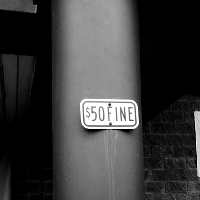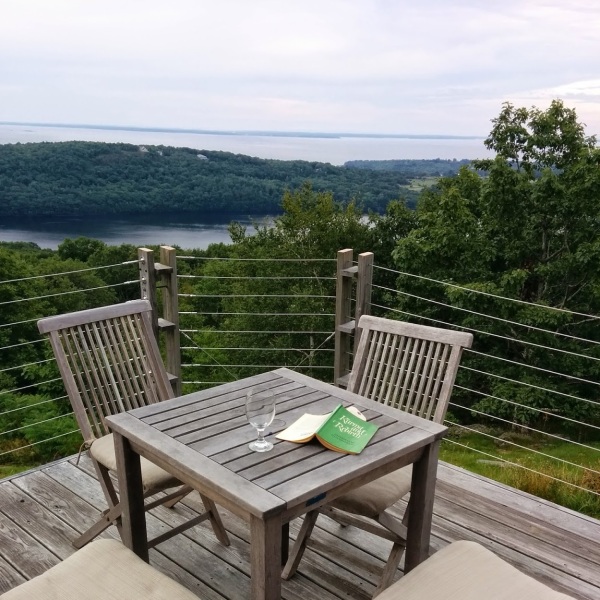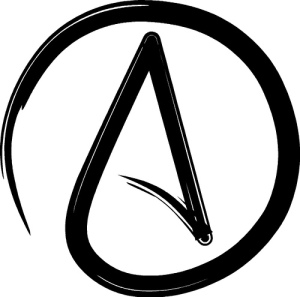(Alternate titles: “Books”, and “I’m glad I’m not dualistic like you guys.”)
I’ve been reading actual books again (both the old-fashioned paper type and the modern “e” type), and it’s very nice. I’ve even consciously made a decision to keep doing more of that (foam theories notwithstanding) with the idea that I feel better when I read more book-sized things and mindlessly scroll fewer social-media-post-sized things.
When I finish a book lately, I with some significant probability write up a little review of it for my Goodreads profile (which may or may not cause it to also appear on Amazon I can never remember). So really you can read them all over there and there’s no need for me to post any of them here.
But probably I will anyway. :)
I just finished Red Pine’s translation and commentary on The Heart Sutra (always a favorite), and this is what I wrote over there:
“The Heart Sutra itself is just a page long, and contains the heart of Prajñāpāramitā teachings. And among other things, as Jan Nattier notes, ‘in contemporary Japan, the Heart Sutra has been printed on more teacups, hand towels and neckties than has any other Buddhist scripture’.
“In this readable translation and commentary, Red Pine gives us the thoughtful and scholarly treatment that he is so good at. Considering the sutra in its historical context, the analysis considers it largely as a response to, or a refutation of, the teachings of earlier Buddhist sects, where the light of the Prajñāpāramitā shows all the more or less complex conceptual structures of those earlier teachings, the Four Whatsits and Eight Thingamys and Twelve Whathaveyous, to be not just empty of self or of independent origination, but to be exactly emptiness.
“Not that that’s a bad thing.
“Line by line, he gives both his own formulations of the teachings involved, and pithy quotes from various writers and thinkers and teachers across the centuries; it’s a rich and nourishing stew.
“As a matter of dharma, I would say that the sutra itself is adequate and complete; you don’t need to read commentaries on the Heart Sutra in order to attain the non-attainment that you may be not striving to not-strive for. But who knows, it also couldn’t hurt; sometimes you get nothing from the dharma talk in the evening, but enlightenment comes when the bottom falls out of your bucket while the water was reflecting the moon.
“And in terms of an enjoyable historical treatment, it’s an interesting and informative tour through thought and history that even if not strictly speaking necessary in order to (not) achieve anuttara-samyak-sambodhi, is still a good read.”
Some other stuff that I thought but didn’t put into the Goodreads writeup:
One interesting piece of (what?) doctrine that came up as I read this was the line that the Zen Mountain Monastery chants as:
“Far beyond deluded thoughts; this is Nirvana.”
and Red Pine gives us here as:
“They see through delusions and finally nirvana”.
This is a significant-looking difference. Red Pine talks about how various translators have interpreted this in various ways. In one reading, the Bodhisattvas (which is who we’re talking about here) see that basically everything, from basic sense-perceptions and ideas and everything else that earlier sects made big diagrams of, as empty and emptiness and (perhaps, I’m not terribly fond of this word) delusion, and seeing that leads one to (or just is) nirvana.
But this reading seems to stop arbitrarily short of the obvious end-point. The other reading, which is the one Red Pine gives us, says that nirvana itself is one more thing that is not separate from emptiness. As he puts it, “bodhisattvas do not reach or attain nirvana but overcome all delusions, including those that concern the ultimate goal of nirvana… Nirvana is simply the final delusion.”
And that seems more pleasing to me (modulo just what “delusion” means). But I’ll probably continue my vague effort to memorize the ZMM version of the Sutra anyway, because (so far anyway) I find it flows better (“not born not destroyed, not stained not pure, without loss without gain”).
Then there’s the mantra at the end. Red Pine says, and having read it I find it hard to disagree with, that it’s a pretty important thing, if we read the text as it is. This mantra, “gate gate pāragate pārasaṃgate bodhi svāhā“, might seem to the Western reader (e.g. me) as just a funny little thing tagged on at the end there. But Red Pine (who I keep wanting to call just “Pine” but on the other hand it feels weird to) takes it very seriously; it is the very last thing in the Sutra, after all, the climax of the whole message.
It seems a bit over the edge to me when he writes for instance, “After negating the categories of the Abhidharma, this sutra refuses to set up another category or set of categories. Whatever it is, this teaching is beyond it, including itself. This is the function of this mantra: to go beyond language and the categories in which language imprisons us and to lead us into the womb of Prajnaparamita, which is the Gone, the Gone Beyond, the Gone Completely Beyond.”
I’m not entirely sure what to do with this. Womb? If I take the sutra as actually claiming that this particular mantra leads to freedom from suffering and realization of ultimate emptiness (and maybe a womb) in a way that any other random chant doesn’t, then it seems like, again, a stopping one step short of the summit (or the edge of the abyss). If dharmas are not separate from emptiness, than surely this mantra is also not separate from emptiness, or from the sound of the wind, or a horse’s sneeze (do horses sneeze?). So why is the sutra making a big deal about it like this?
I get the same feeling from some of the sages that Red Pine quotes. Te-ch’ing (aka Hanshan Deqing, a different person than ol’ Hanshan Cold Mountain, fortunately if confusingly) for instance is quoted as saying “The foregoing text is exoteric prajna. This mantra is esoteric prajna… Who but the wise can use it? Certainly not those with small minds.”
The wise? Small minds? What is this? Is not mind emptiness, and emptiness mind? Is small mind separate from wise mind? Is the distinction between the wise and “those with small minds” not itself empty?
Whenever I trip over this sort of thing in Buddhist literature, I am distracted, and wonder whether this was inserted later on by the PR department, or if the author was slipping into dualism, or (perhaps more likely) if there is something going on here that is too subtle for me, and that what seems to be a sudden blatant bit of dualism is actually something wise in a way that I have not yet encompassed.
Which reminds me of the joke: three students are walking together after the evening’s dharma talk, and one says “the talk tonight seemed quite dualistic!” and the second one says “ah, but you see, by saying that, you are yourself engaging in dualism!” and the third one says, “heh, I’m glad I’m not dualistic like you guys.”
:)
















